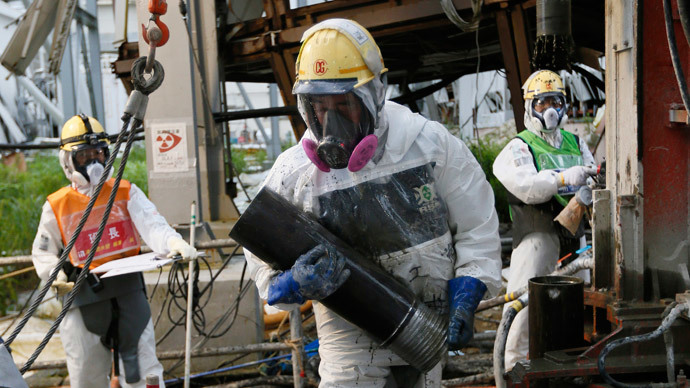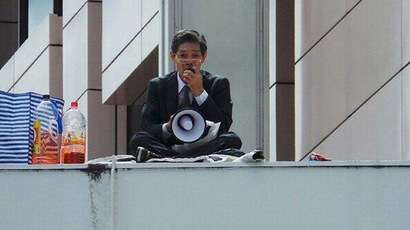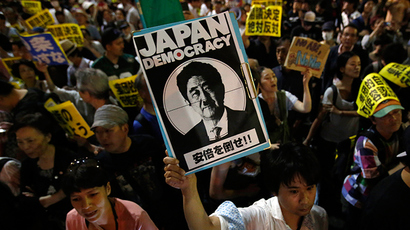2,000 bombs a year? Japan’s plan to reopen nuclear reprocessing plant stirs concern

Reactivating a nuclear fuel reprocessing plant could provide Japan with enough plutonium to produce up to 2,000 atomic bombs a year, a US expert has warned. The “reckless” move could destabilize the region, as Japan’s neighbors rush to compete.
Henry Sokolski, executive director at the Nonproliferation Policy Education Center, urged the House Foreign Affairs committee to hinder the reopening of the nuclear reprocessing facility in Rokkasho, North Japan.
The plant itself was supposed to begin operations in October 2013, but its reactivation was delayed by new safety regulations. The operators of the facility, which, according to the IAEA, has an annual capacity of 800 tons of uranium, or 8 tons of plutonium, say it should be up and running by this October.
Allowing the reactivation of the plant would be
“insulting” and “reckless,” especially when
South Korea is not allowed to reprocess or enrich nuclear fuel,
the US expert said, according to South Korean news agency
Yonhap.
"If Japan ever decided to open its large reprocessing plant at Rokkasho, it would be producing roughly 2,000 bombs' worth of nuclear weapons-usable plutonium a year," Sokolski told the committee in a hearing last week. "This would almost certainly prompt South Korea to initiate nuclear enrichment or reprocessing of their own as a hedge or weapons option."

Japan abandoned nuclear power following the March 2011 earthquake-triggered tsunami with caused multiple meltdowns at the Fukushima nuclear plant. However, the Japanese government has decided to start reactivated the countries 48 reactors because of an energy shortfall. Sendai nuclear power plant in the southern Kagoshima Prefecture has just cleared an initial safety hurdle, an essential step in the reactivation process.
Washington has banned Seoul from enriching and reprocessing nuclear fuel because of proliferation concerns. The Korean government is currently pushing for a renegotiation to the agreement and wants the right to carry out so-called “pyroprocessing” – a reprocessing technology.
"We say we want South Korea not to enrich or reprocess. Yet
we have encouraged Japan to do so," Sokolski said.
Sokolski warned that China would react to the reactivation of the
facility and any action they would take would "likely
challenge not only Japan's and South Korea's security, but our
own treaty commitment to defend our Asian allies.”
For these reasons, Sokolski believes Congress should pressure the US government into encouraging Japan to rethink its nuclear plans by calling for a renegotiation of the US-Japanese nuclear cooperative agreement.
Tensions between Japan and its neighbors have been building recently after the government’s decision to reverse a key article in the constitution effectively allowing the country to go to war. Japan had previously been a pacifist country, meaning that its armed forces are technically domestic self-defense units, and cannot participate even in UN-backed conflicts, other than as peacekeepers.
Prime Minister Shinzo Abe said the changes were necessary as Japan’s previous pacifist approach had emboldened its adversaries.
China reacted immediately to the landmark reinterpretation of the Japanese constitution, demanding that Tokyo respect the security concerns of its Asian neighbors.














